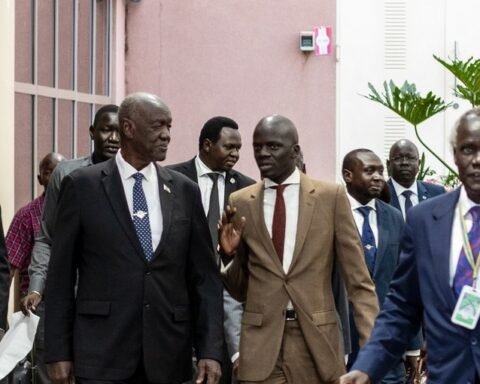The United States has begun withdrawing non-essential diplomatic personnel from several key locations.
The move signals rising concerns over the possibility of open confrontation with Iran, following the breakdown in nuclear negotiations and growing military uncertainty.
The U.S. Embassy in Baghdad is preparing for a partial evacuation, while voluntary departures have been authorized at outposts in both Bahrain and Kuwait. Although the Biden administration has not publicly disclosed a specific threat, intelligence assessments and regional developments suggest rising tensions around Iran’s nuclear ambitions and the possibility of a preemptive strike by Israel.
“It could be a dangerous place,” President Donald Trump said, referring to the deteriorating security climate. “They can’t have a nuclear weapon—very simple. We’re not going to allow that.”
The president’s comments come amid increasing frustration over the stalled nuclear negotiations with Tehran, once structured around the Joint Comprehensive Plan of Action (JCPOA). Talks have failed to produce a viable framework for Iran to limit uranium enrichment, a critical process in the development of nuclear weapons.
Analysts say recent U.S. intelligence reports have shown that Israel is preparing for a possible airstrike on Iranian nuclear sites—most notably Natanz and Fordow, both of which have advanced centrifuge installations. In response, Iranian Defense Minister Aziz Nasirzadeh has warned that any attack will trigger direct retaliation against U.S. military bases stationed across the Gulf region.
Also Read; Russia Strikes Ukraine’s Power Plant Amid Winter
Currently, there are approximately 2,500 U.S. troops in Iraq, many stationed at Al Asad Airbase, which has previously been targeted by Iran-backed militias. Iraq’s Foreign Ministry has urged calm, saying the country does not believe there is an immediate threat to American personnel on its soil.
Meanwhile, global oil prices surged by more than 4% following reports of the evacuation and potential for regional instability. The UK Maritime Trade Operations (UKMTO) has also advised vessels transiting the Strait of Hormuz to exercise heightened caution due to increased naval activity in the area.
The U.S. Central Command (CENTCOM) has raised its alert level across the region, citing “escalating threats,” and allowing families of U.S. military personnel in Bahrain and Kuwait to voluntarily return home. Though no formal military engagement has been announced, the move signals serious concern within the Pentagon about a possible miscalculation leading to war.
While both Washington and Tehran have publicly said they want to avoid open conflict, the collapse of diplomacy has created what some observers describe as a dangerous vacuum. The next round of nuclear talks is tentatively scheduled to take place in Muscat, Oman on Sunday, June 15, though expectations for a breakthrough remain low.
“We’re walking on the edge of a knife,” said one regional analyst speaking to Al-Monitor, “and one spark could ignite the whole region.”







